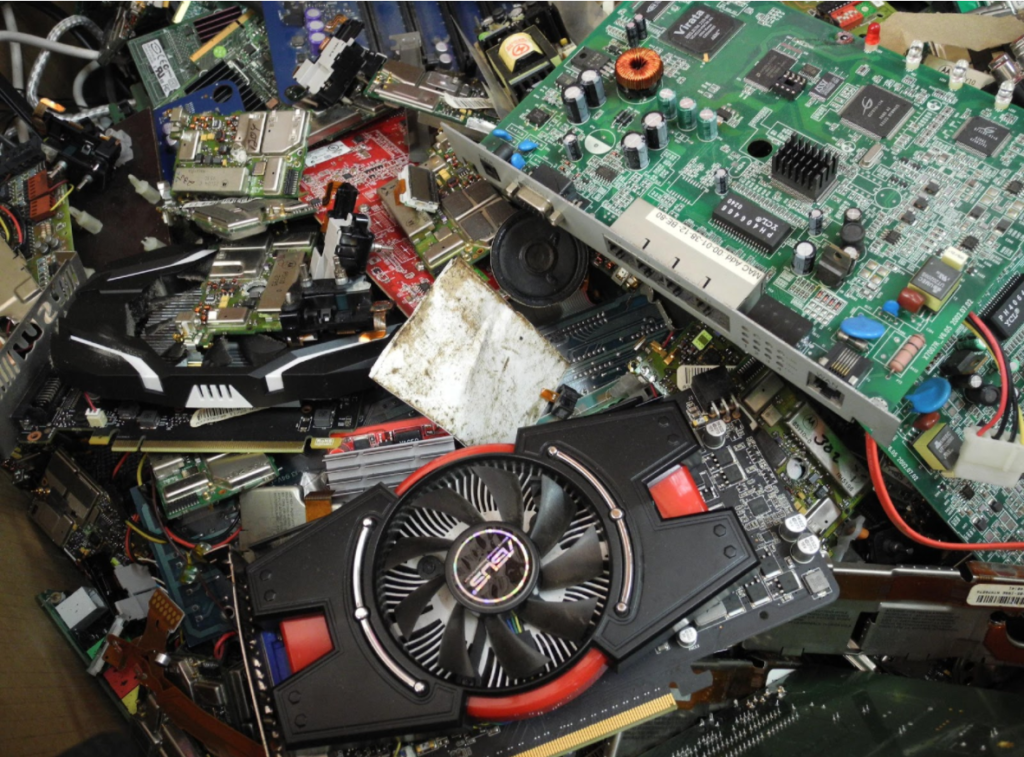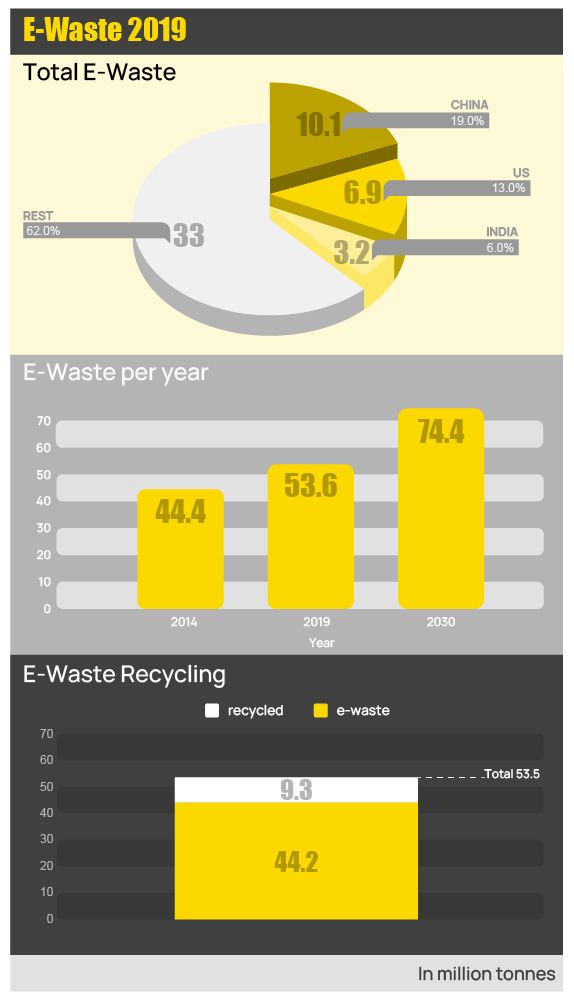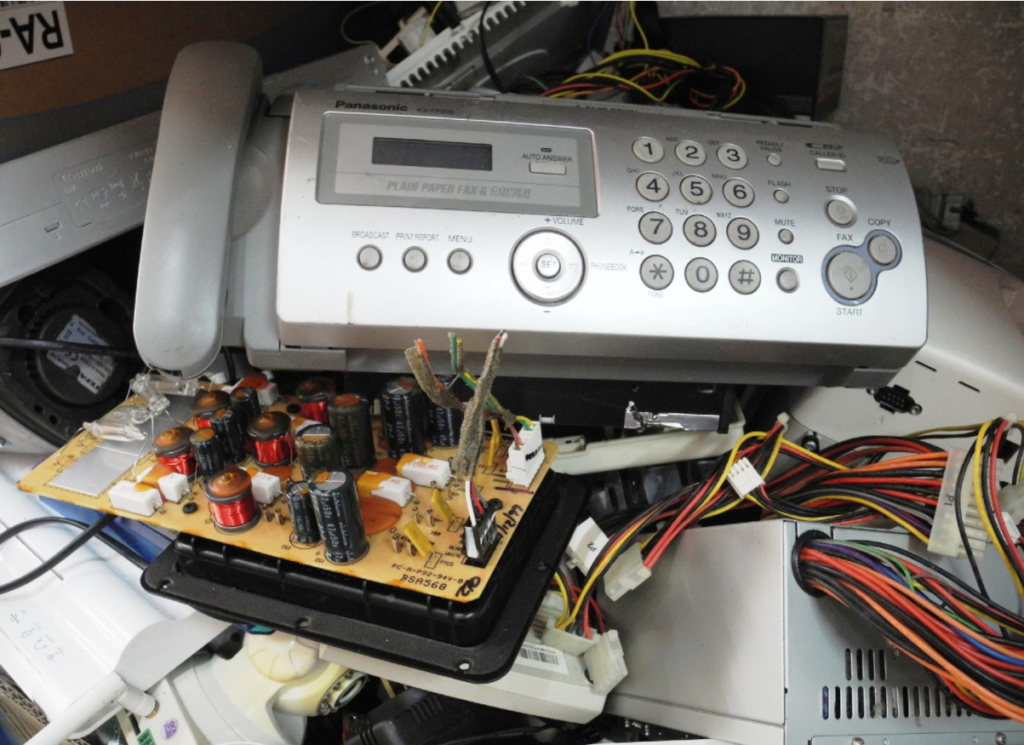Our ever-increasing demand for new electronics and lack of organised recycling is producing unsustainable amounts of earth-polluting junk. Read some eye-opening statistics and see where you can recycle old devices in Hong Kong.

Mobile phones and computers dominate our everyday lives. We rely on them to communicate with others, watch and listen to what’s going on in the world, and capture and document practically every waking moment. When we’re not glued to these, we’re tracking our health and fitness on wearables or watching content on huge Ultra HD TVs. But this instant convenience carries a price and one that we’re all paying.
The lifespans of these devices are limited – either by action or design – and they either stop working and we need to buy new ones or a better version comes along that upgrade junkies just have to have. So the old ones are likely relegated to drawers and cupboards, where they’ll be forgotten until we need to free up space. At that point, we want to get rid of them – but how do we do that?

Dumping electronics, or e-waste, – discarded products with a battery or plug – in regular rubbish bins headed to landfills is lethal because they leach toxic substances such as mercury, cadmium and lead. These, in turn, pollute our air, water and the environment.
But that doesn’t stop the dumping. Last year, a United Nations-led Global E-Waste Monitor 2020 report revealed that the world’s population discarded a staggering 53.6 million tonnes of e-waste in 2019, up 21% in just five years. Only 17.4% was recycled.
“Even countries with a formal e-waste management system in place are confronted with relatively low collection and recycling rates,” the report said. Infrastructure to manage e-waste in middle and low-income countries was “not yet fully developed, or, in some cases, entirely absent”.

The biggest contributor of e-waste was China with 10.1 million tonnes, followed by the United States with 6.9 million tonnes and India with 3.2 million tonnes. These three countries alone accounted for almost 38% of global e-waste.
E-waste or WEEE (Waste Electrical and Electronic Equipment) has grown by 9.2 million tonnes since 2014 and is projected to grow to 74.7 million tonnes by 2030 – almost doubling in just 16 years. This is mainly fuelled by higher consumption rates of electronic and electrical equipment, short life cycles and few repair options.
Global warming is another issue cited in the report, as it noted that inadequate recycling of undocumented refrigerators and air conditioners release 98 million tonnes of carbon dioxide equivalents into the atmosphere.

While the damage to the environment from un-recycled waste may be immeasurable, what is clear from the Global E-Waste report is that the way we produce, consume, and dispose of e-waste is unsustainable.
What could greatly help are more defined regulations, such as those announced in the European Commission’s Circular Economy Action Plan published in March 2020, which includes initiatives that would require manufacturers to produce products that are made to last longer and are easier to repair and reuse instead of just being thrown away.
So, what about that drawer full of old mobile phones? Or the defunct computer screens sitting in your office? The best way to get rid of these is to hand them over to recyclers who can disassemble and sort them into component parts.
In Hong Kong – which generates about 70,000 tonnes of e-waste annually – there is WEEE Park, a treatment and recycling facility in EcoPark, Tuen Mun that opened in 2018. It uses state-of-the-art technologies provided by German recycling specialists, ALBA Group to turn regulated WEEE into valuable secondary raw materials through a series of detoxification, dismantling and recycling processes. It does collections and is looking to expand its five collection centres across the territory.
Other recyclers in Hong Kong include the Computer and Communication Products Recycling Programme and Caritas Computer Workshop. Telecommunications and internet provider 3 Hong Kong has a recycling programme that lets you drop off unwanted mobiles and accessories at specific shops.
You can also upcycle old electronics to NGOs such as Crossroads Foundation using their GoodCity.HK app, Hong Kong Salvation Army and Vision First. Friends of the Earth collects empty toner and ink cartridges. Head here to learn more.

